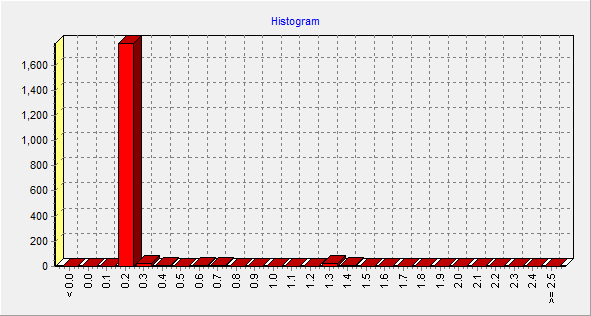In the last entry, I was fretting over lousy database performance adversely affecting wordpress. Since then I had a chance to install WP-Super-Cache and evaluate the effects. I’m operating it in “half cache” mode at the moment, and may try operating it in full cache mode later. This benchmark ran for approximately 8 hours and measured the time to fetch the same page over and over again.
As we can see, the horrid performance that we were experiencing without caching is now gone. 98% of the requests occur in 0.2 seconds, which is the same time as fetching a static page from a static (non-wordpress) website. 2% of the requests take about 1.3 seconds and those are likely the cache misses. There were none of the aberrant 10-second or 20-second spikes that were so pesky when operating directly on the database. WP-Super-Cache is clearly a win when it comes to masking bad database performance.
This has eliminated the primary concern that I had with migrating to wordpress/godaddy — page generation times in the 10’s of seconds are not acceptable.
The remaining concern is ease of authoring. Authoring and in general mucking-around with wordpress administration inherently must use the the database. This means that it can’t take much advantage of WP-Super-Cache/WP-Cache. If the website becomes too onerous to maintain, then I’d still have to abandon the idea. As just about everything is becoming dynamic these days, this hilights the importance of looking past simple static page fetching speed and evaluating your provider’s database performance. As time goes by, websites are going to use more database, not less.
